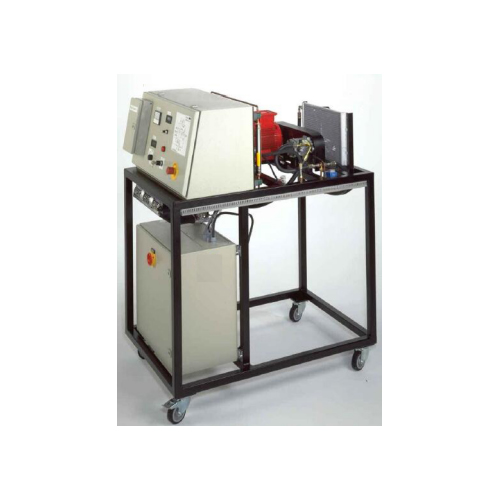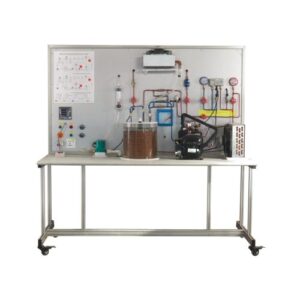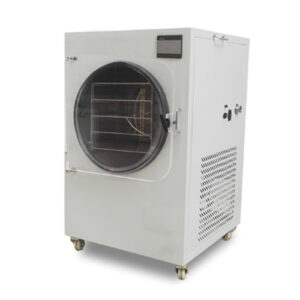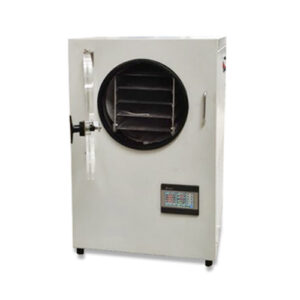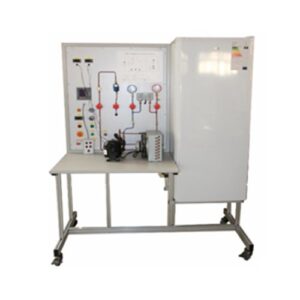ASR2043 Vechile Air Conditioning Didactic Equipment Air Conditioner Training Equipment
Learning Objectives / Experiments
– principle of operation, design and handling of a vehicle air conditioning system
– detection of typical faults and repair of a faulty air conditioning system
* simulation of 8 system faults
– typical components of a refrigeration system
– refrigeration circuit as thermodynamic cycle
* log p-h diagram
* determine the coefficient of performance of the system
* determine the compressor pressure ratio
Specification
[1] investigation of a typical vehicle air conditioning system for cooling the vehicle interior
[2] compression refrigeration system with compressor, condenser, filter/drier, expansion valve and evaporator
[3] electric motor with variable speed as compressor drive
[4] condenser with fan
[5] evaporator as air cooler with three-stage fan
[6] compressor drive via V-belt and magnetic coupling
[7] simulation of 8 faults via buttons in the connectable box
[8] system is switched on via ignition lock
[9] display of temperatures, pressures (refrigerant), flow rate (refrigerant), pick-up current, speed
[10] refrigerant AR134a, CFC-free
[11] air conditioning system voltage supply: 12VDC
Technical Data
Electric motor
– rotary current motor
– variable speed via frequency converter
500…3.000min-1
– power: 4kW at 3.000min-1
Axial piston compressor
– refrigeration capacity: approx. 3kW at 3.000min-1
Condenser: capacity: 6,6kW
Evaporator: capacity: 5,3kW
Measuring ranges
– temperature: 4x -100…100°C
– flow rate (AR134a): 10…95L/h
– pressure: -1…9bar / -1…24bar
– speed: 0…3.000min-1
– current: 0…10A
Dimensions and Weight
LxWxH: 1.210x800x1.520mm
Weight: approx. 185kg
Required for Operation
400V, 50/60Hz, 3 phases or 230V, 60Hz, 3 phases

